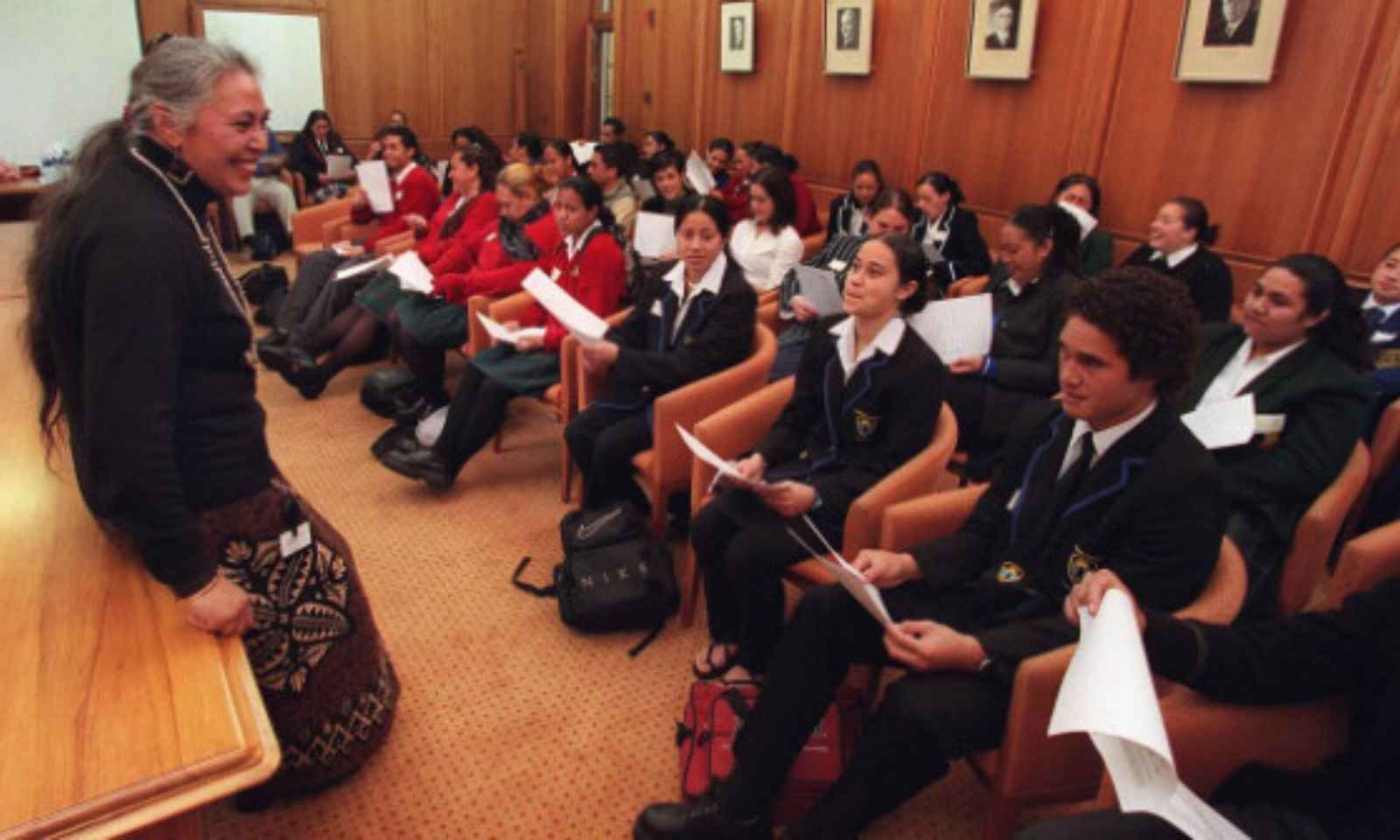

Luamanuvao Dame Winnie Laban made history in 1999 as Aotearoa New Zealand’s first Pacific Island woman elected to Parliament.
Photo/Victoria University
‘A ministry that gives us voice and visibility’
Dame Luamanuvao Winnie Laban on the vital role of MPP advocating for Pasifika amid political challenges.

Dame Luamanuvao Winnie Laban says her recent honorary doctorate from Victoria University of Wellington is not just for her but for all Pacific people whose values, struggles, and dreams have shaped Aotearoa.
In an interview with William Terite on Pacific Mornings, the former Labour MP and Assistant Vice-Chancellor says the honour reflects the legacy of those who came before her.
“I've always said that we're a culture of the ‘we’ and it's not that the ‘me’ is not important, but we come from communal cultures,” Laban says.
“This award is really a recognition of the vision, of the values and the dreams of our people, especially those who have gone before us.”
Laban, who became New Zealand’s first Pacific Island woman MP in 1999, also played a key role in leading Victoria University’s Pacific strategy.
She is concerned about Aotearoa’s current political climate.
“For me, this latest pay equity statement and focus on cutting a lot of jobs is very, very concerning and not a leadership that I support.”
A ministry under fire
The ACT Party has proposed eliminating the Ministry for Pacific Peoples (MPP), arguing that it provides little tangible value.
Laban, who previously held the Pacific Peoples portfolio, strongly opposes the move.
Listen to Laban's full interview on Pacific Mornings here
“They fought for that ministry,” she says, referring to earlier generations. "It's not as if it's the Ministry of Finance.
“It's a ministry that gives us voice and visibility and advocacy when it comes to budget and vote allocation, and that is why it is important that we maintain that ministry.”
While she acknowledges the public’s right to demand results, Laban argues that dismantling Pacific institutions is not the solution.
“It's important that the Ministry of Pacific can show its teeth, and they are the ministry that should be advocating and making ministries of health and education, economic development, broadcasting and media, that's where they should be.
“They've also had a severe budget reduction, you know, with all the restructuring of the public sector. But for me, if you're not fit for purpose, there's no need to exist.”

Laban meets with students in Caucus room at Parliament. Photo/Supplied
Critics have pointed to ongoing inequities in health, education, and employment outcomes for Pacific people. But Laban believes that the focus should shift towards empowering MPP by properly resourcing it and holding all departments accountable.
The power of representation
Having led across various sectors as a social worker, politician, and university executive, Laban identified academia as her biggest challenge.
“With universities, I think it's important that they embrace competent Pacific people at the senior leadership and executive level because they're such powerful institutions,” she says.
“For me, those experiences are important because we give voice to those issues, but we also enhance New Zealand and the region.”

Laban's parents were public servants in Sāmoa at the time they emigrated in 1954 to take up government positions in Wellington, New Zealand and also to ensure that any children they had gained New Zealand citizenship. Photo/Stuff NZ
She urged political parties to take succession planning and talent recruitment within Pacific communities seriously.
“I'm a huge believer in succession and that's what all leaders should be doing. Time to step aside and support the next generation to come through.”


